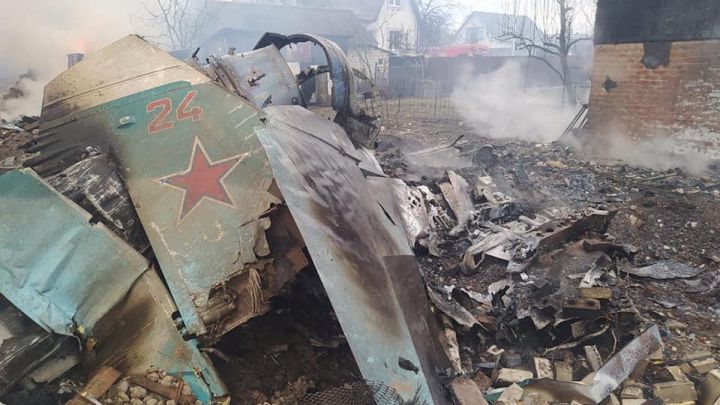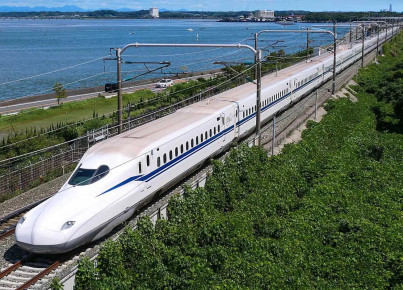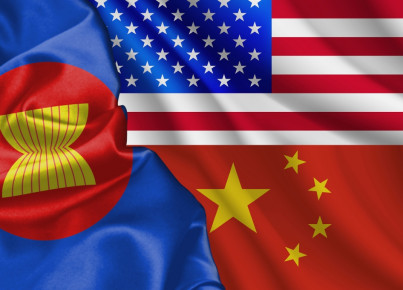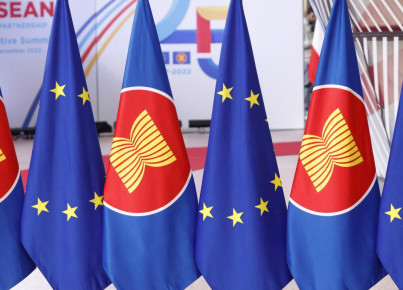ASEAN is exposed, to varying degrees, to sanctions aimed at the Russian economy. Energy, grain and investment are the sectors where these relations mainly intersect
While much of the "Western" world looks at the developments in the Russian-Ukrainian conflict condemning Moscow with severe economic sanctions, the members of the Association of Southeast Asian Nations have taken an uneven stance. According to some observers, the delay in issuing statements on the crisis and the lack of explicit condemnation of Russia by ASEAN are the symptoms of the difficulty encountered by the regional actors in finding synthesis between their bilateral relations with Russia. Singapore and Myanmar, as an instance, condense the bloc's divisions, one explicitly condemning Moscow's actions, the other expressing support. The reasons for these contradictions are to be found in the historical and commercial ties that unite the fortunes of South-East Asia with those of Russia.
The ASEAN bloc is exposed, to varying degrees, to sanctions aimed at the Russian economy. Energy, grain and investment are the main areas where these relationships intersect. According to James Guild of The Diplomat, although there is uncertainty about the impact of the conflict on Southeast Asian economies, there are some clues that can anticipate its impact. First, Russia's role as a global energy supplier worries some countries in particular. Although for Singapore only 5.7% of oil imported in 2019 is Russian, and for Thailand 3.3%, Vietnam may be more exposed to conflict-driven energy supply shocks, with 15% of coal imported in 2019 coming from Russia. Moreover, energy prices were already on the rise before the conflict broke out, and the war will only exacerbate the situation.
Global inflationary pressure on food prices could increase further, putting economies such as Indonesia and the Philippines, which imported around 25% and 16% of total grain from Russia and Ukraine respectively in 2019, in a crisis. Many Southeast Asian countries have state agencies specializing in the collection of essential commodities to cope with any shocks to supply chains, but the phenomenon of shrinking supply will still affect prices and production.
Then, several joint ventures link the fates of the ASEAN economies to that of Russia. In general, there seems to be an urgent need to break off commercial partnerships with Moscow, not least due to the practical impossibility of carrying out exchanges and transactions. A case in point is Vietnam's Long Phu 1 coal-fired power station, whose Russian contractor fears it will never receive back the money it invested in the project. The link between Moscow and Hanoi dates back to Soviet times and was mainly centered on the supply of defense equipment by Russia, which dominates 60% of Vietnam's military imports. Although Vietnam has not condemned the Russian invasion of Ukrainian territory, international sanctions could jeopardize economic relations with the historic communist ally as well.
Russia had patiently carved out room of influence over the Southeast Asian region. Beyond the primacy in arms supply, the 'turn to the East' policy was an explicit recognition of how much Russian President Vladimir Putin valued relations with regional actors. When the 30th anniversary of official relations between Russia and ASEAN was celebrated in 2021, Putin had commended the political proximity between the sides by stressing how often the positions of the bloc's nations on issues of global significance coincide with those of Russia. Indeed, the two players have also published a comprehensive action plan to implement their strategic partnership for 2021-25, which touches on the trade, strategic and security dimensions. All this shows how Moscow has reserved specific relations with South-East Asia for itself, moving away from the other two dominant models, the US and China. Unlike Washington and Beijing - and with the exception of its controversial arms supply to Myanmar - Moscow is not directly involved in any political-diplomatic crisis in the area. For Russia and the countries of South-East Asia, economic and commercial, and sometimes ideological, ties are also a bridge of diplomatic exchange. The different postures taken by the bloc's nations stigmatize ASEAN's difficulties in claiming centrality in matters that individually touch on these historic bilateral ties.






